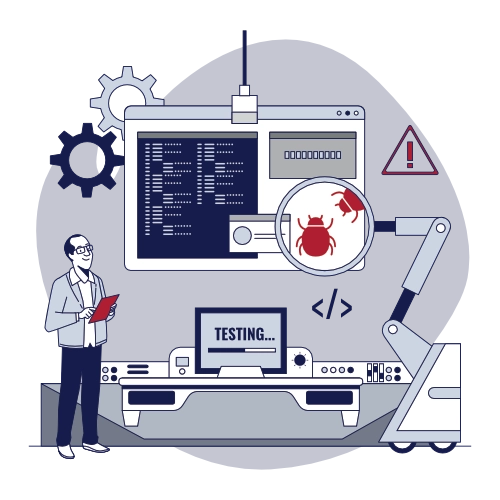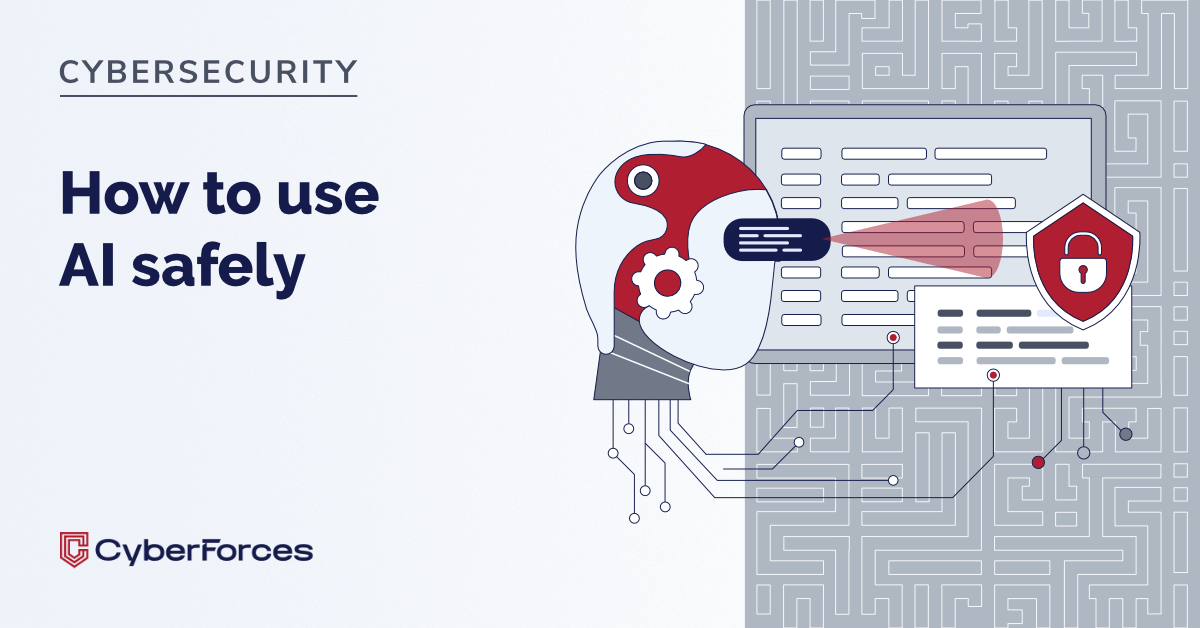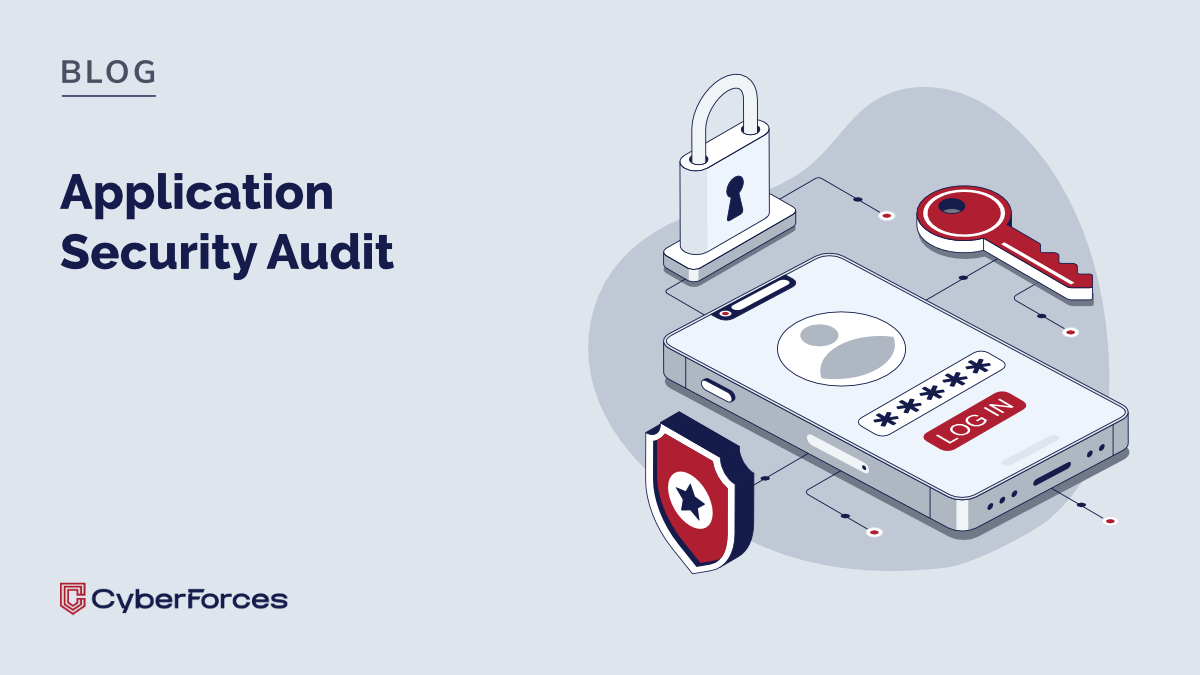What we do

Penetration Testing
We simulate real-world cyberattacks to uncover vulnerabilities before threat actors do. Our security experts will examine your systems from every angle—identifying weaknesses, misconfigurations, and potential entry points. You’ll receive a comprehensive report with actionable recommendations to strengthen your defenses and reduce risk.

Red teaming
Could your organization withstand a real cyberattack? Most companies don’t know—until it’s too late. We conduct controlled, multi-vector attacks to uncover weaknesses in your security, processes, and human response. Test your defenses under real-world conditions and see how prepared your team truly is.

Audits and Implementations
New regulations are coming into force. Is your company ready to meet them? From ISO 27001, through NIS2 and DORA, to national regulations like KRI and UoKSC — compliance is no longer just an obligation but a competitive advantage. Discover how we can help you pass audits and implement the necessary standards.

Social Engineering Tests
We’ll attempt to breach your systems by exploiting the most common vulnerability—your people. Using a mix of psychological, technical, and physical techniques, we simulate real manipulation tactics to expose security gaps. You’ll receive insights to improve your processes and protocols, and we’ll help train your staff to recognize and resist social engineering attacks.

Training & workshops
Your people are your most valuable asset. Invest in their development with expert-led training in IT, cybersecurity, and essential business skills. See how tailored learning paths can boost performance across your entire organization. Choose growth that drives real impact.
Contact usand learn how we can help you strengthen your security.
Our Approach:
Request a quote
Contact details

Frequently Asked Questions
What are penetration tests?
Penetration testing involves simulating the actions and mindset of a real hacker to replicate how they would attack your company’s infrastructure. This approach provides critical insights needed to identify weaknesses and improve your defense systems.
How are penetration tests performed?
Since penetration tests replicate the techniques used by real-world cybercriminals, they may involve phishing, SQL injection, cross-site scripting (XSS), or deploying malicious software. Each test is tailored to reflect realistic attack scenarios—revealing how your systems respond under pressure.
What does SSDLC stand for?
The Secure Software Development Lifecycle is a mindset and technical approach that integrates security into every phase of software development. It significantly boosts effectiveness while reducing costs by identifying and addressing vulnerabilities early in the process.
How is the program implemented?
We start by analyzing your organization’s needs and conducting a security audit to define the right course of action. Together with leadership and key stakeholders, we then develop a comprehensive security strategy—along with a tailored training program for the teams responsible for its implementation and maintenance.
What is social engineering?
Social engineering is a hacker’s attack vector aimed at deceiving users—most often employees. It relies on manipulation and deception to trick victims into revealing sensitive information or unknowingly granting access, for example by clicking a malicious link or downloading infected software.
What does a social engineering attack look like?
After an initial consultation with the client, we attempt to bypass their defenses and carry out a social engineering attack. The results and consequences are then thoroughly reviewed during a dedicated training session following the test.
What is red teaming?
Red teaming is a simulated attack designed to target the weakest points in your system—whether it’s unaware employees, flaws in your security architecture, or software vulnerabilities. The goal is simple: breach your defenses at all costs, just like a real attacker would.
How does red teaming work?
Our specialists use a wide range of techniques, drawing on deep expertise and real-world experience. Methods may include social engineering (such as phishing or smishing) as well as black-box testing approaches like deploying malicious software—all to simulate realistic attack scenarios and identify critical vulnerabilities.
What is a security audit?
A security audit is a comprehensive evaluation of vulnerabilities and potential entry points in your defense systems. After the audit, you receive a detailed report with clear recommendations on how to reduce risk and strengthen your cybersecurity posture.
Is a security audit enough to ensure protection?
A security audit focuses on quickly scanning systems for known vulnerabilities. While valuable, it doesn’t assess potential business impact of a successful attack or uncover unconventional entry points—both of which are addressed through penetration testing.
What steps should be taken after a security breach is detected?
Immediately notify the appropriate teams, secure systems to prevent further access, assess the extent of the breach, and inform all stakeholders. It is crucial to contact a cybersecurity service provider to help manage the incident.
Why are cyber awareness trainings crucial for every employee?
Cyber awareness trainings enhance an organization’s overall resilience to attacks by educating employees on recognizing and appropriately responding to cyber threats, reducing the risk of data breaches and other security incidents.
What benefits does regular security auditing bring?
Regular security audits identify and mitigate vulnerabilities in IT infrastructure, ensure compliance with legal and industry standards, and improve defensive strategies against cyber attacks.
How can I tailor cybersecurity services to my industry’s specifics?
Choose a cybersecurity service provider with experience in your industry to ensure that the solutions offered are tailored to the specific challenges and regulatory requirements of your sector.
How can I verify the effectiveness of a conducted security audit or training?
The effectiveness of our audits and training can be verified through the analysis of pre- and post-intervention reports and penetration tests. We also offer regular security reviews and updates to ensure that all systems remain protected against new threats. Our training programs are evaluated by participants, allowing us to continually refine our teaching methods and adapt them to current market needs.
Contact us
and learn more
Newest articles
How to Protect Data and Work Responsibly with AI
Artificial intelligence (AI) has become an integral part of daily work – supporting data analysis, automating processes, and improving communication. Tools such as ChatGPT, Copilot, and Gemini are...
10 Steps to Boost Your E-Commerce Cybersecurity Before Black Friday
Black Friday brings a flurry of online shoppers and, unfortunately, cybercriminals hoping to take advantage of the chaos. When your online store is buzzing with activity and your support team is...
Application Security Audit
Web and mobile applications have become the backbone of business operations in nearly every industry. They process personal data, handle payments, support logistics processes, and facilitate...
















